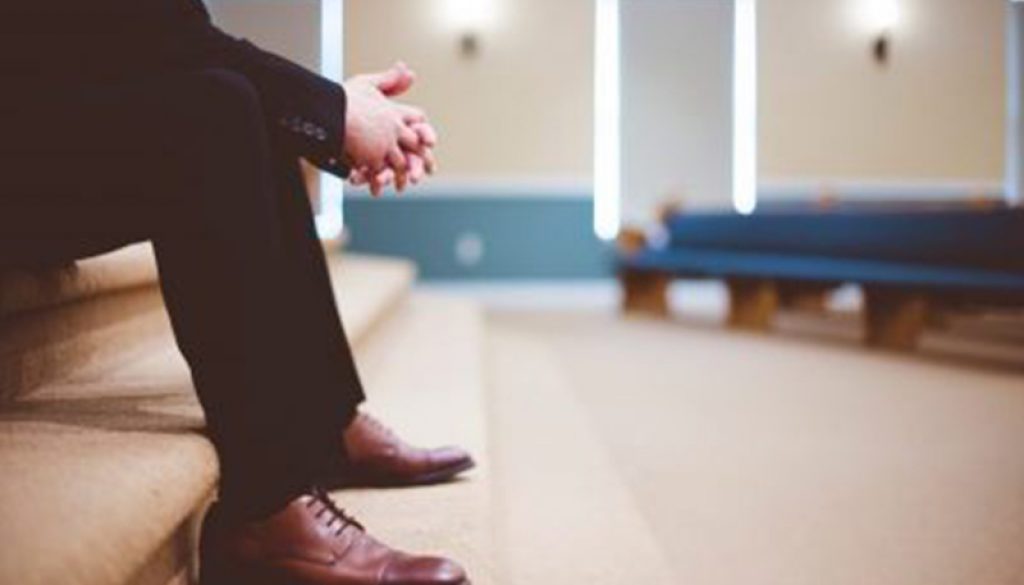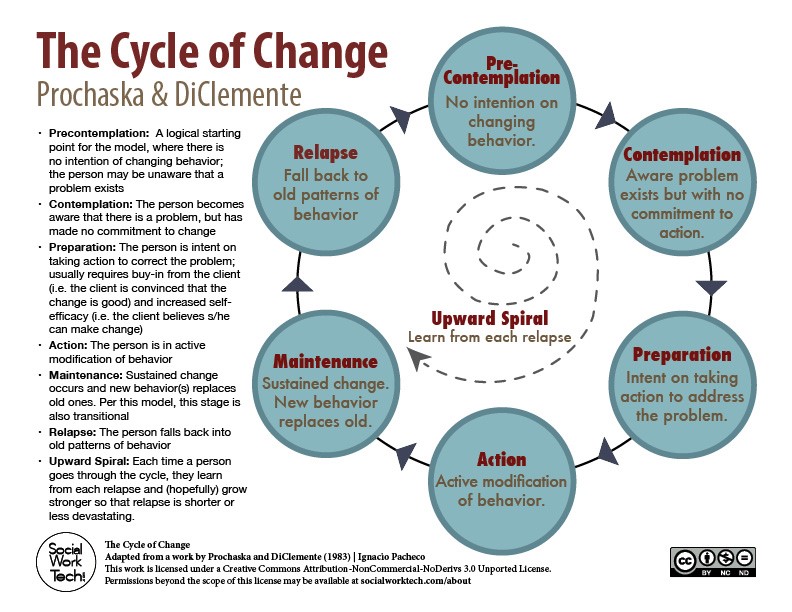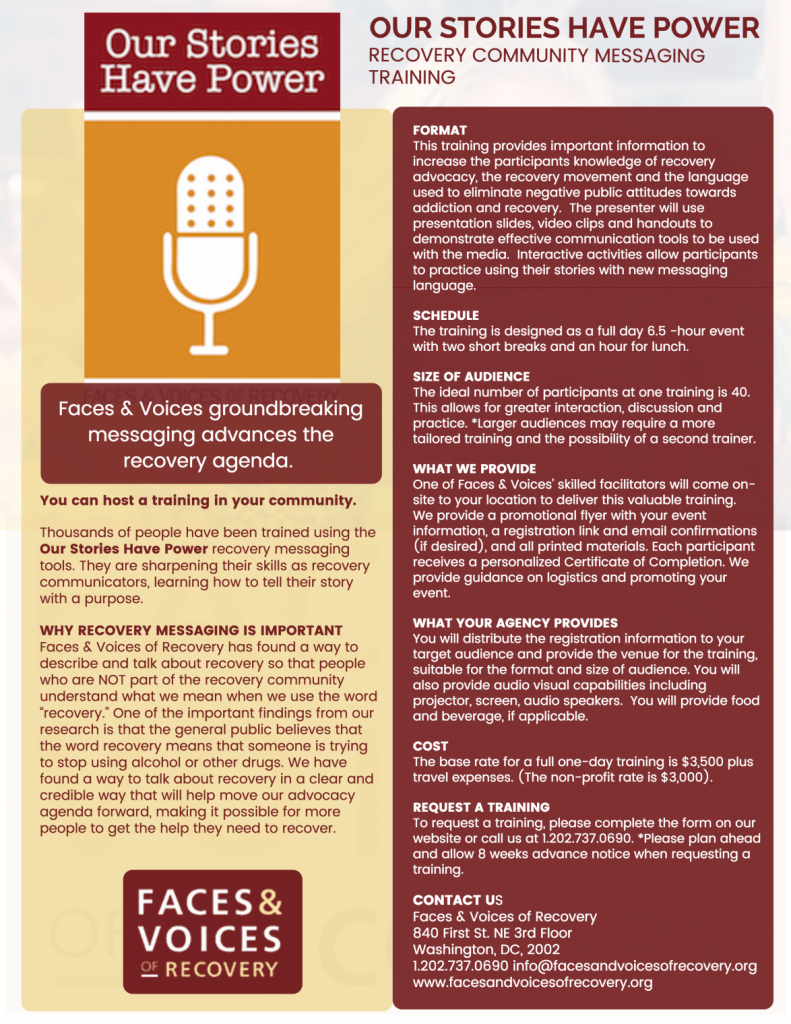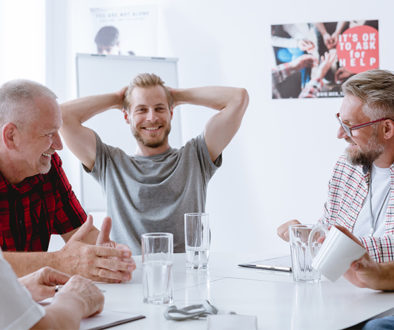TRANSFORM THE RECOVERY WORLD
6 PRINCIPLES THAT WILL TRANSFORM THE RECOVERY WORLD
“Cartel–an arrangement between parties to promote a mutual interest or goal… “
I believe it will take a RADICAL reshuffling of the current treatment approach & public policy to make a dent in this crisis. I say this because all our efforts, so far, have fallen short as indicated by the astronomical increase in over-dose deaths. If it’s a disease the primary indicator of successful care would be keeping people alive. Right?
All that we have done to this point has been predicated on our pre-existing approach/philosophy. All our money and resources have been funneled through our pre-existing system of care.
It’s going to take a massive shake to transform and usher in change. Our institutions will double down on current practices. Because that is what institutions do. They exist to sustain themselves. It’s a sociological fact.
The change could come via the free market. If treatment providers saw the wisdom of a new business model. However, that would only happen if current business dried up. “If it’s not broke don’t fix it”…. seems to be the prevailing philosophy. And I don’t see it drying up soon. Too deep a problem. Too much demand. Plus 70% repeat business makes the model self-sustaining.
The solution will come via “outsiders” AND NON-CONFORMISTS. Independent thinkers, people from other industries, progressive healthcare providers, and risk takers. Partnerships that, on paper, make little sense but in practice lead to transformational ideas.
THESE PARTNERSHIPS WILL PRODUCE RADICAL IDEAS. People will actively push back on the ideas. When that happens, it indicates that the proposed idea is probably the right type of idea…bureaucratic objection especially, is a litmus test for a great idea. Almost as promising as when a treatment provider tells you “that’s not the way we do it”…. then you are on the right track.
It’s going to take a cartel…A RECOVERY cartel. Like any good cartel we need to have our organizing principles and our mutual goals… From my perspective the CARTEL holds the following principles near and dear.
Within the CARTEL we embrace the concept of “keep coming back”. For us, this is not just a cliché or a theoretical ideal. For us, it is the measure of our success and the single most important aspect of the recovery process. We know that people who stay engaged in a recovery process, regardless of the specific pathway, tend to get better. Even if you struggle along the way your life starts to improve. Even if you “mess up” and use, things begin to get better. Furthermore, we believe that the vast majority of people that continue to work a recovery program do eventually sustain long term recovery.
On a very practical level this means we will never preach to you or judge you. It means that we are all on equal footing in terms of our recovery. It means there is no hierarchy of recovery or right or wrong way to do recovery. We don’t count days. We don’t prescribe specific pathways. We just want to see your life improve. We just want to see families get put back together. We will meet you where you are in this process. If you are still using our goal is to help you figure out next steps and how this behavior fits in with YOUR personal values. Not ours. We have no agenda other than your welfare.
We believe substance misuse is a healthcare issue. We offer you a place to discuss it as a healthcare issue. It is not a moral failing. If you are struggling with substances you probably have considered stopping. You may have tried before. We believe we can provide you with new information, supportive coaching and unconditional positive regard.
Our core recovery principles include the following:
1. You are in recovery if you say you are in recovery.
Admittedly this philosophy is NOT exclusive to the CARTEL. Many other recovery community organization have adopted this perspective. I have been in situations where the definition of recovery has been a hot topic of debate. I have been in situations where people have contested the merits of the term “in recovery” versus the term “recovered”. I have little tolerance for such things.
Entering into recovery is a difficult process. If we make people stand at the threshold and question if they “qualify” it is only going to drive people away. Therefore, for our purposes remember…you decide if you are in recovery. No need to fill out an application or get your passport renewed. You’re in.
We hope to assist you in the journey and we know that recovery is process not an event. If we offer advice and support it is in the spirit of guidance and it comes with unconditional positive regard. We stand in radical non-judgment of your journey. However, we will tell you if your ship is sinking. We will just do it in a very loving and caring manner. No shame. No punishment. No judgement.
We want to welcome you to recovery, regardless of how you define recovery!
Recovery is NOT a contest…
2. There are multiple pathways to recovery.
Again, this may not be earth shattering. As a matter of fact I hope people read this and say “of course there are multiple pathways. My fear is, there are many who believe that there are only specific ways to recover and any effort outside of that framework is futile, inferior and doomed for failure. I used to think that way. What a horrible outlook on recovery that was.
“Rather we shall reflect that the roads to recovery are many.” – Bill Wilson Co-Founder, Alcoholics Anonymous
People find recovery through countless avenues. Research indicates that the majority of people with a diagnosable substance use disorder will recovery via a process of “natural” recovery. In other words, they will find ways to eliminate their substance abuse and live a productive life without formal intervention and formal “recovery programs”.
I do not dispute this research. However, I have concerns with waiting for people to “figure it out”. In this age of overdose, we need to be very aggressive, assertive and effective in promoting recovery. That said, the key part of the message needs to be multiple pathways exist and you can invent your own pathway. We just believe that you can get that done more effectively if you have a coach or a mentor to help you figure that out.
Recoveryism is a term that has been used to describe the phenomenon that exists where people hold the position that their personal path of recovery is the “best path of recovery”. Actually, many believe that their personal pathway of recovery is the ONLY pathway of recovery.
This is a most dangerous form of tribalism. Can you imagine how many people have been alienated or chased away via such attitudes? There is no legitimate place for this in the recovery world and certainly should be ZERO tolerance for this in the professional community.
3. You should not be required to “quit” prior to becoming involved in a professional program. The person who is “not sure” what they want to do with substance use, has a right to, support, coaching, and direction.
Change happens across a predictable and universal process. The stages of change have been well researched and validated over and over. They apply to anyone making a behavioral change including someone dealing with a substance use disorder.
Many people struggle with commitment to change and a constant process of “thinking about” change (ie. Contemplation stage). This is completely natural.
Most programs require “willingness” and will only work with the person in the action stage of change. We believe, instead, that working with a person in contemplation is just as important as working with the person in preparation or action.
We also believe that many people in contemplation will move to preparation and action if they have people to talk to about the issue. Processing information about the change moves the person through the change process. Isolation does not.
Therefore, we would love to see you even if you are not sure you want to quit. Even if you are not sure you are an addict. Even if you want to come to just get the heat off for a little while. We will help you get the most out of your experience.
4. We believe family recovery support is also a primary part of the process.
Family recovery stands on its own merit and should be available regardless of the status of the addicted loved one. Some type of recovery plan is essential for all family members. We know that family members can benefit and experience improved mental health, reduced stress and ostensibly better overall physical health. Therefore, the primary purpose of family recovery is improved health and welfare of the in and of itself.
However, we have observed an interesting phenomenon. When the family takes “care of itself” the addict frequently follows suit. This has been validated by a wide variety of resources. ARISE intervention model teaches this very philosophy. It was in my ARISE certification training that I first heard the statistic “1 family member is as powerful as 8 professionals”. Additional studies have been done on the impact of the family. Behavioral couples therapy for example has been shown to deliver around 66% success in getting the addicted individual into services.
Very important: Tough Love is an oxymoron. YOU NEED TO FOCUS ON APPROPRIATE EXPRESSION OF LOVE. NOT TOUGH LOVE. Sometimes, setting limits and boundaries is the appropriate expression of love.
We do not believe in complete disengagement. Many things you hear about family role in recovery are dangerous.
WE HOPE TO DISPEL THESE MYTHS.
5. We believe that recovery is a process not an event
We know that, statistically speaking, it takes on average 4 or 5 genuine attempts at recovery before “it sticks”. This isn’t to say relapse is a necessity. It is not. However, relapse is nothing to be ashamed of and should be met with loving compassion. There is a need to make “returning to recovery” as easy as possible.
We also believe that professional services that specialize in re-engagement are essential to the continuum. There is a glaring hole in our professional service structure and we need to provide long term support. We need to re-vamp our system to support long term, chronic disease management rather than episodic acute care.
6. And finally…we believe RECOVERY will bitch slap addiction if we allow it to.
If we come out of the shadows and conduct ourselves as responsible members of society the community will embrace us. If family members become open about their struggles the community will embrace them. There is power in numbers.
However, our efforts in this area have been set back by “advocates” who reinforce the stigma when they speak for recovery. Much work has been done on messaging and identifying the most effective way to carry the message. Market studies have been done. Focus groups have been conducted. There is productive way to share the message of recovery and there is a counter-productive way to carry the recovery message.
A public lead meeting or online speaker meeting is not the way to promote recovery. This type of spectacle works for those already in recovery. However, we are not trying to preach to the choir. We are trying to reach the masses. If the goal is true advocacy then please adopt some type of intentional recovery messaging.
If the goal is to fill your treatment center than keep doing what you are doing.
However, in the interest of “rigorous honesty” please give up the word advocate.










July 3, 2017 @ 6:40 am
As a recovering addict and alcoholic (at least I think so) and open-minded treatment professional, I feel the same frustration about the opioid epidemic as everyone else.
However, I think we should take it in context. My clients are frequently successful in changing their lives. The opioid thing didn’t start yesterday (nor end tomorrow) and neither will our well-intentioned hard work. I spent 20 years banging dope and another 29 fighting its deadly effects. We will find the right tools and approaches. I have seen the shift in perspective and paradigms myself.
So, let’s not throw the baby out with the bathwater: a lot of stuff we do, does work.
Finally, I am not at all comfortable with the whole cartel concept. Those are evil people, narco-terrorists, why borrow their language?
Just sayin’.